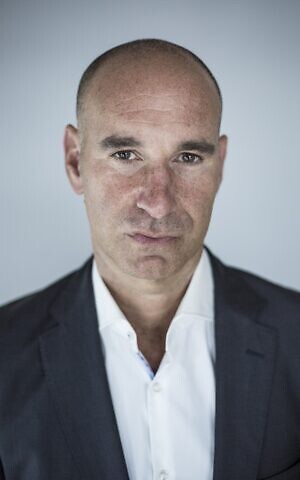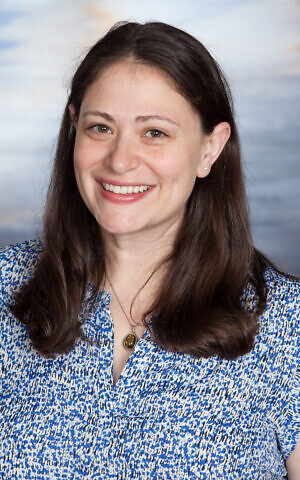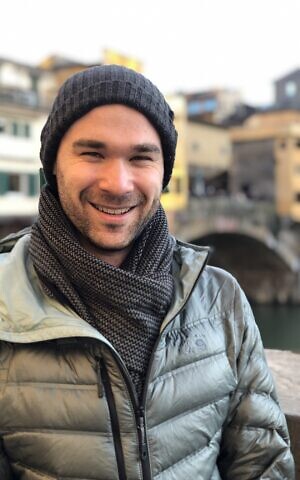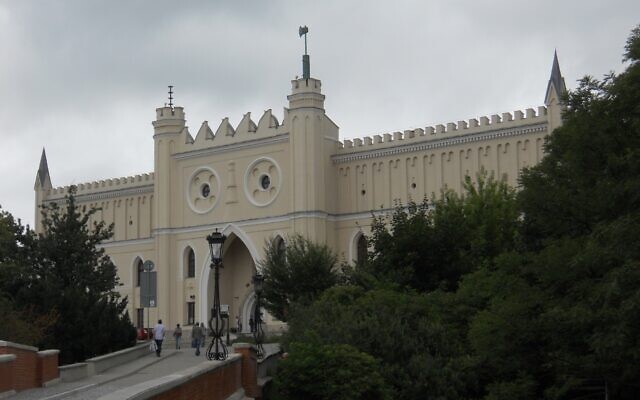Atlanta Jews Support Refugee Relief in Poland
Thanks to preexisting relationships, the Atlanta Jewish community has taken the lead in supporting the Polish Jewish community in their humanitarian efforts.
While most national news organizations continue to focus on the death and destruction in Ukraine, the Jewish world is shifting its attention to the millions of Ukrainian refugees who have fled the warzone. Most have escaped to Poland, where they’ve been embraced and assisted by the small and sometimes fractured Jewish community there.
Thanks to pre-existing relationships, the Atlanta Jewish community has taken the lead in supporting the Polish Jewish community in their humanitarian efforts. This is especially true in Kraków.

During his most recent weekly Facebook Live feed, Jonathan Ornstein, the founder and executive director of the Jewish Community Centre of Kraków, highlighted the generosity of the Atlanta Jewish community. In an email to the AJT, he noted the “six-figure” donation from Atlantans Marcia and Mark Miller, who have also offered to match any contributions their friends make to the JCC.
According to Ryan Kaplan, an Atlanta native and former Jewish Federation of Greater Atlanta employee who now directs English-language communications at the Kraków JCC, Marcia Miller visited the JCC a few years ago and was impressed with the staff and volunteers there. “We are devastated by the events in the Ukraine, and so grateful the JCC in Kraków is able to help Ukrainian refugees,” she told Kaplan.

The Miller family isn’t the only big benefactor from Atlanta. Until COVID, the Frank Family Foundation had been regularly sending missions to Poland and Israel. The Polish part of the trip always included a visit to the Kraków JCC, usually including a Shabbat meal. According to Isaac Frank, his family — led by parents Larry and Lois — have long “pumped big dollars into the JCC. What the JCC built is quite beautiful.”
The Kraków JCC was opened 14 years ago this April, by Prince Charles of Great Britain. Its goal was to support the resurgence of Jewish life in Krakow, which had been decimated by the Holocaust and decades of Communist rule. According to its website, the “JCC Kraków works to change both the world’s perception of Poland and Poland’s perception of Jews.”
The invasion of Ukraine has certainly furthered those goals. Prior to the conflict, the JCC provided social and educational services to Kraków’s Jewish community, including daycare and support for local Holocaust survivors. Once Russia invaded, Ornstein said, “it was not even a question that we would” morph into a “humanitarian aid business.”

“We’re all flying blind,” he told the AJT. “We’ve been able to scale up from our normal daily job, helping the community that was decimated and hurt by history, first by the Holocaust and then by Communism. As Jews, we are mindful because of our history.”
Frank said the JCC’s refugee relief efforts “started organically and then it took on a life of its own.” Nearly overnight, the JCC added 10 members to its staff of 30 to assist the hundreds of Ukrainian refugees, Jewish and non-Jewish, who come through their doors. The JCC “is leveraging the relationships they had developed in Kraków and are cross-pollinating those relationships to help address the Ukrainian refugee crisis,” said Frank.
According to Kaplan, the JCC has formed a coalition with four other nonprofits that help direct refugees to them.
“We are housing 200 people a day, directly or through our partners,” with the help of hotels, apartments and bed-and-breakfasts, said Ornstein, at a cost of some $8,000 to $10,000 a day — money that hadn’t been earmarked in its $2 million budget. “We are spending a lot more than we ever have, while still helping our Holocaust survivors. We don’t have a Federation or a JF&CS in Kraków. There’s no infrastructure. We’re not set up to do this medium- or long-term,” he said, but the JCC is still hoping that the Polish government will do “the heavy lifting” to assist the Ukrainian refugees.
Indeed, about three weeks into Russia’s invasion, Poland announced that it would allow refugees to stay in the country for 18 months, with the ability also to work and support their families. Their children would be integrated into local schools.
From the beginning, the Polish community contributed by dropping off food and supplies at the Kraków JCC. “We’ve seen more support in the last two weeks than ever,” Kaplan observed.

“The Poles have been amazing, opening their doors and hearts,” said Ornstein. “It wasn’t obvious this would happen.” He pointed out that the Ukrainian refugee crisis has “done a lot to unite the Jewish community in Poland, just like the U.S.”
In Warsaw, where the infighting among Jewish groups is legendary, the Beit Polska Federation of Progressive Jewish Communities in Poland has been working to assist refugees and the Warsaw JCC has opened its doors as well.
In Lublin, only 70 miles from Ukraine’s border, a four-person medical delegation from Hadassah, the Women’s Zionist Organization of America, set up facilities to treat injured refugees, Jewish and non-Jewish.
The Atlanta Jewish community is monitoring all of this, from near and far. Nearly a month into the war, Federation CEO Eric Robbins traveled to Poland’s border with Ukraine to “bear witness to the atrocities happening to so many individuals as a result of this war.”
For those with deep connections to Poland and Ukraine, like Rachel Rothstein, this war is excruciating. “I’m really struggling hard to see the cities I spent time in” attacked by Russia, said Rothstein, a teacher at The Weber School who also directs the Israel Poland Experience there. “It’s painful to be an expert,” she acknowledged, noting that she had done academic research in Poland. “It’s very difficult to control my emotions when I’m talking to people about it. I’ve been to Lviv, Kyiv and Odessa.”
Rothstein recently spoke to students about the war at a school assembly, while also teaching social studies classes. “This is very much a story that the Jewish community identifies with,” she said.
- News
- Local
- Jan Jaben-Eilon
- Marcus Jewish Community Center of Atlanta
- Jewish Federation of Greater Atlanta’s Community Relations Council
- Jewish Family and Career Services
- Ukraine
- russia
- Putin
- Krakow
- Poland
- Jonathan Ornstein
- Jewish Community Centre of Kraków
- Ryan Kaplan
- Frank Family Foundation
- Prince Charles of Great Britain
- Refugees
- Beit Polska Federation of Progressive Jewish Communities
- Women’s Zionist Organization of America
- The Weber School




comments